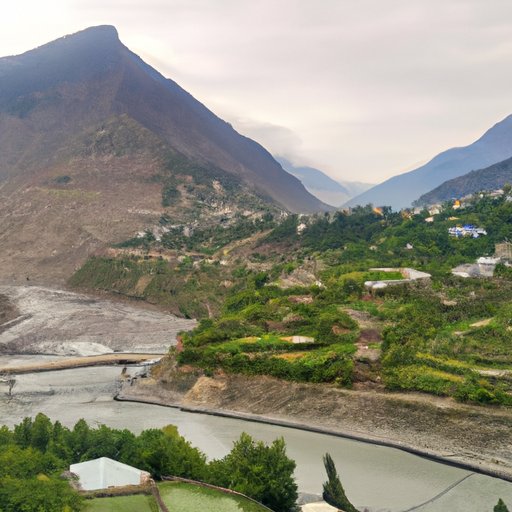Exploring Pakistan: A Journey Through a Diverse and Beautiful Country
Pakistan is a country that is often in the news for all the wrong reasons. Despite the challenges faced by Pakistan, it is a country full of rich culture, breathtaking scenery, and warm hospitality. In this article, we will explore different aspects of Pakistan – its diversity, landmarks and tourist attractions, bustling cities, natural beauty, and sociopolitical landscape.
Cultural Diversity and Richness of Pakistan
Pakistan is a country with a rich and diverse cultural heritage. The country is divided into four provinces – Punjab, Sindh, Balochistan, and Khyber Pakhtunkhwa – each with its unique customs and traditions. Pakistan also has a large number of ethnic groups, including Punjabis, Sindhis, Balochis, Pashtuns, and Kashmiris.
Each region of Pakistan has its unique cultural practices and celebrations. For instance, in Punjab, the Bhangra dance is a prevalent folk dance that is performed during weddings and other celebrations. Similarly, the Sindhi Topi and Ajrak are famous for their vibrant colors and intricate designs in Sindh. The Balochi culture is known for its hospitality and love for lamb dishes, whereas the Pashtun culture revolves around tribal traditions and hospitality.
Famous Landmarks and Tourist Attractions
Pakistan is a country with rich history and ancient civilizations. The Indus Valley Civilization, which dates back to 3300 BCE, is one of the earliest known civilizations in the world. The remains of this civilization can be found in ancient cities like Mohenjo-Daro and Taxila. Mohenjo-Daro was declared a UNESCO World Heritage Site in 1980 and is a must-visit for history enthusiasts.
In addition to historical sites, Pakistan has some famous landmarks that attract tourists from all around the world. The Badshahi Mosque in Lahore is one such landmark. It is the second largest mosque in Pakistan and was built during the Mughal era. The Lahore Fort, which is adjacent to the Badshahi Mosque, is a fort complex that also depicts a blend of Mughal and Sikh architecture.
Pakistan is also home to breathtaking natural attractions. Nanga Parbat, the ninth-highest mountain in the world, is located in Pakistan’s northern region. The Hunza Valley is known for its picturesque views of towering mountains, lush green valleys, and crystal clear lakes. The Neelum Valley is another popular tourist spot known for its pristine beauty and serene atmosphere.
Vibrant and Bustling Cities of Pakistan
Pakistan has several bustling cities, each with its unique features. Lahore, the cultural capital of Pakistan, is known for its vibrant food scene, historical landmarks, and active fashion industry. Karachi, on the other hand, is the country’s economic hub and boasts a diverse population, modern infrastructure, and spectacular beaches.
Islamabad, Pakistan’s capital city, offers a unique blend of modernity and tradition. The city is known for its scenic beauty, including its famous Faisal Mosque and the Margalla Hills. Islamabad is also home to the country’s government offices, foreign embassies, and diplomatic missions.
Natural Beauty of Pakistan
Pakistan is home to some of the world’s most spectacular natural attractions. From its towering mountain ranges to its crystal clear lakes, Pakistan’s natural beauty has to be seen to be appreciated. Some of the most popular natural attractions in Pakistan include the Himalayan and Karakoram mountain ranges, the Hunza Valley, the Neelum Valley, and the Kaghan Valley.
For adventure enthusiasts, Pakistan offers several hiking and trekking routes. The K2 Base Camp trek is one of the most challenging, but also most rewarding, treks in the world. The Karakoram Highway, also known as “the eighth wonder of the world,” is a 1300 km long road that connects Pakistan with China through the Karakoram mountain range.
Sociopolitical Landscape of Pakistan
Pakistan has a complex sociopolitical landscape. The country has been struggling with political instability, military coups, and sectarian violence for several decades. However, Pakistan is also a country of resilient people who have found ways to carry on despite the challenges they face.
Pakistan has a diverse population with a range of ethnic and religious backgrounds. However, some ethnic communities, such as the Pashtuns and Balochis, have been marginalized, leading to tensions and unrest in these regions.
Conclusion
Despite its challenges, Pakistan is a country that has a lot to offer to tourists. From its rich cultural heritage to its breathtaking scenery, Pakistan is a journey worth taking. The warm hospitality of the Pakistani people is another reason to visit this country. As Pakistan continues to grow and develop, it is a country that is sure to become a popular tourist destination in the coming years.
